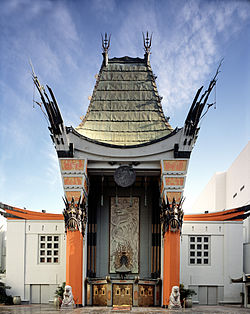
Having coffee earlier this week with the founders of
Caachi, a nascent marketplace for independent film, we got to talking about some of the differences between Silicon Valley and Hollywood.
The two industries have one important thing in common…
Silicon Valley is a magnet for people from all over the planet who want to help develop new technologies. Hollywood is a magnet for people from all over the planet who want to make important (or at least, successful) movies. In both places, you have people doing what they love, and getting paid for it.
Often, they’re paid obscene sums of money: Johnny Depp and Tom Cruise have both earned
more than $30 million in a single year, and the Forbes
billionaire list is studded with geeks like Bill Gates, Larry Ellison, and Google co-founders Sergey Brin and Larry Page.
I think the main difference is one of priorities.
In Silicon Valley, tech trumps everything else. What a new technology can do is far more important than any content it carries, any businesses it threatens, any behaviors it changes. The technology, as long as it works reasonably well, should be allowed to do its job unhindered. There’s no nostalgia in Silicon Valley; life here is a headlong rush toward the new-and-improved future.
In Hollywood, storytelling trumps everything else. A great tale, well-told and well-played by the screenwriter, actors, and director, is the ultimate objective. How the story reaches the audience is immaterial, whether it’s carried in canisters to a theater’s projection booth, or beamed by cell towers to a wireless handset. Hollywood is pervaded by nostalgia: premieres still take place at Grauman’s Chinese Theatre, which opened in 1927, and many directors (including Steven Spielberg) say they still shoot on film, rather than with digital cameras, because that’s the tool their predecessors used to tell stories.
Having different priorities doesn’t necessarily create conflicts; Hollywood and the Valley work together well when they acknowledge each other’s strengths, and let the entertainment companies tell stories and the tech companies write code. What creates conflicts is when one group disses the contributions of the other...when Silicon Valley types say, “Oh, we’ll just go out and license some content,” or when Hollywood types say, “That’s not important – it’s just technology.”
When there’s an appreciation of the value of technology
combined with storytelling, you get real breakthroughs like
The Great Train Robbery (the first movie to tell a story),
The Jazz Singer (the first feature film with a synchronized soundtrack),
Gone With the Wind (the first movie in Technicolor to win Best Picture), or
Star Wars (the first use of motion-controlled cameras to shoot miniatures), which marks the 30th anniversary of its 1977 release today.
And it’s a pretty diificult-to-dispute fact that if it weren’t for a fresh technological revolution every decade or two – from sound in the 1920s to home video in the 1970s to the Internet today – Hollywood wouldn’t have endured and grown as a business.
Your thoughts?
Labels: Caachi, Hollywood, Johnny Depp, movie history, Silicon Valley, Tom Cruise



